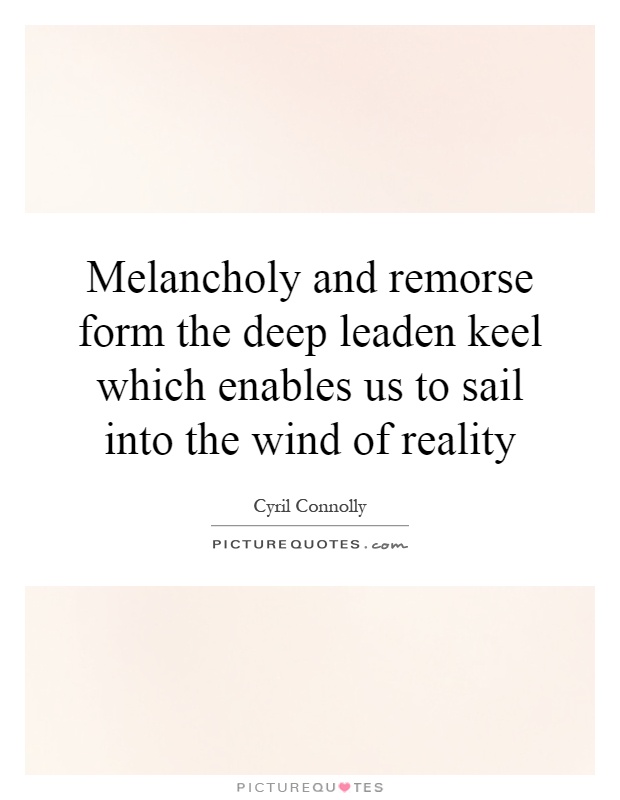Melancholy and remorse form the deep leaden keel which enables us to sail into the wind of reality

Melancholy and remorse form the deep leaden keel which enables us to sail into the wind of reality
Cyril Connolly, a renowned English literary critic and writer, is often associated with the idea that melancholy and remorse are essential components of the human experience. In his work, Connolly explores the complexities of human emotions and the ways in which they shape our understanding of reality. The quote, “Melancholy and remorse form the deep leaden keel which enables us to sail into the wind of reality,” encapsulates Connolly’s belief that it is through our struggles and sorrows that we are able to navigate the challenges of life and come to a deeper understanding of ourselves and the world around us.Melancholy, often described as a feeling of deep sadness or sorrow, is a powerful emotion that can weigh heavily on the human spirit. It is a state of mind that can be both debilitating and enlightening, as it forces us to confront our innermost thoughts and feelings. Remorse, on the other hand, is a sense of regret or guilt over past actions or decisions. It is a form of self-reflection that can lead to personal growth and transformation.
Connolly suggests that these emotions, when embraced and understood, can serve as a guiding force in our lives. Like a leaden keel that stabilizes a ship in rough waters, melancholy and remorse provide us with the necessary ballast to navigate the turbulent seas of reality. They ground us in our humanity and remind us of our capacity for both joy and suffering.
Through his writings, Connolly delves into the complexities of the human psyche and the ways in which our emotions shape our perceptions of the world. He challenges us to embrace our melancholy and remorse as essential aspects of our existence, rather than shying away from them. By acknowledging and accepting these emotions, we are able to sail into the wind of reality with a deeper sense of self-awareness and understanding.












 Friendship Quotes
Friendship Quotes Love Quotes
Love Quotes Life Quotes
Life Quotes Funny Quotes
Funny Quotes Motivational Quotes
Motivational Quotes Inspirational Quotes
Inspirational Quotes